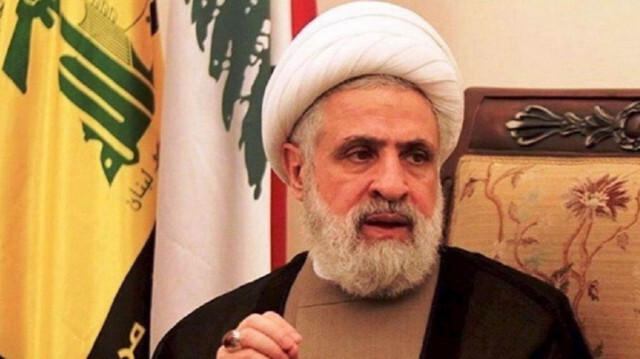
Naim Qassem succeeds Hassan Nasrallah, who was killed in Israeli airstrike in Beirut last month
The Lebanese group Hezbollah said Tuesday that it has elected Deputy Secretary-General Naim Qassem as its new leader.
"Hezbollah's Shura Council agreed to elect... Sheikh Naim Qassem as secretary-general of the group,” it said in a statement.
Qassem, 71, succeeds Hezbollah leader Hassan Nasrallah, who was killed in an Israeli airstrike in the southern suburb of Beirut last month.
Born in Beirut to a family hailing from the village of Kfar Fila in southern Lebanon, Qassem was one of the founders of Hezbollah in response to Israel's invasion of Lebanon in 1982.
A father of six, Qassem has a master's degree in chemistry.
He began his political activism with the Shia Amal Movement in 1974.
Qassem was appointed as Hezbollah deputy chief in 1991 by then-Secretary-General Abbas al-Musawi, who was killed in an Israeli strike the following year.
Nasrallah was elected Hezbollah chief in 1992, while Qassem remained in his position as deputy chief.
- Major figure
Qassem has been the general coordinator of Hezbollah's parliamentary election campaigns since the group first contested them in 1992.
He also served on the group's Shura Council for three terms, where he was responsible for the educational and scouting programs within the group in Beirut.
Qassem witnessed all of Hezbollah's wars with Israel in 1993, 1996, 2000, and 2006.
In 2005, he authored a book about the history of Hezbollah, its political vision, and goals.
Qassem was the first Hezbollah official to make televised speeches following Nasrallah's death, vowing to continue the group's support for Palestinians in Gaza against Israel's war.
Regional tensions have escalated due to Israel's brutal offensive on the Gaza Strip, which has killed more than 43,000 people, mostly women and children, following a Hamas attack last year.
As the conflict spread to Lebanon with Israel launching deadly strikes across the country, over 2,700 people have been killed and more than 12,500 others injured in Israeli attacks since last year, according to Lebanese health authorities.
Israel expanded the conflict by launching on Oct. 1 a ground assault into southern Lebanon.
Hello, the comments you share on our site are a valuable resource for other users. Please respect other users and different opinions. Do not use rude, offensive, derogatory, or discriminatory language.
The floor is all yours.








